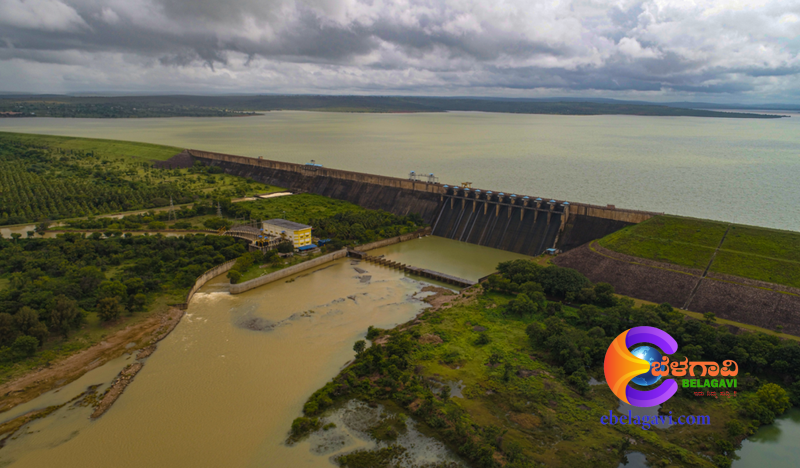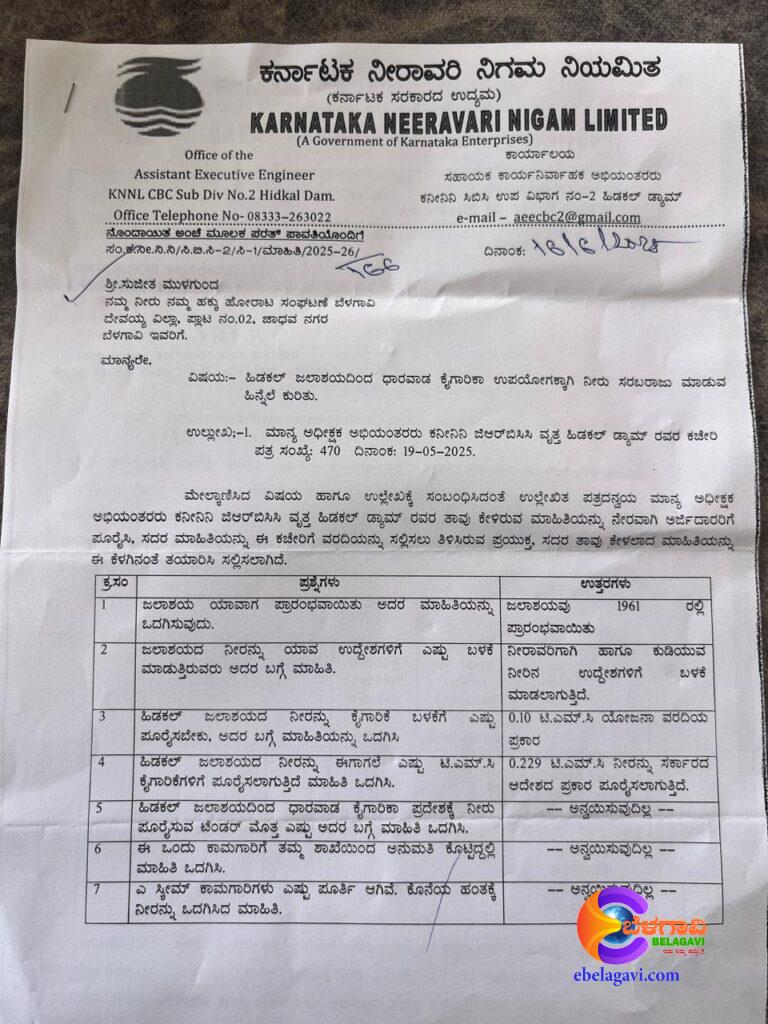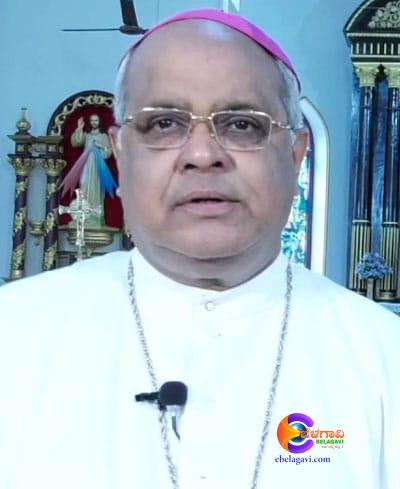Water from Hidkal Reservoir Supplied to Industrial Areas: RTI Revelation
More Water Released Than Originally Allocated
Belagavi – It has come to light that more water than the planned allocation has been released from the Hidkal Reservoir to industrial areas.
This information was revealed through a Right to Information (RTI) application filed by Sujit Mulagund, the president of the “Namma Neeru Namma Hakku” (Our Water, Our Right) movement.

According to data provided by the Assistant Executive Engineer of Subdivision-2, CBC, Hidkal Dam, Karnataka Neeravari Nigam, the State Government has sent out misleading messages to the people of Belagavi and Bagalkot districts. The data reveals how much water was originally supposed to be allocated to industries and how much is actually being released—much beyond the planned amount. This action by the government could further aggravate the drinking water crisis.

Established in 1961, the reservoir was intended solely for irrigation and drinking water purposes. According to the project report, only 0.10 TMC (Thousand Million Cubic Feet) of water was meant to be used for industrial purposes. However, data shows that the government has now ordered the supply of 0.229 TMC—more than double the permitted amount. This clearly shows a gap between government promises and actions.

A Struggle for Water
Many villages in Belagavi, Bagalkot, and Vijayapura that rely on the Hidkal Reservoir are already struggling for drinking water. During summer, most areas are dependent on water tankers. In such a situation, people are questioning the rationale behind diverting extra water to industries.
According to the National Water Policy of 2011, drinking water is given topmost priority, while industrial use is the last. Experts in the field of irrigation have criticized the decision to exceed the water allocation limits for industrial use, calling it a violation of public policy.
What Are the Consequences?
A drop in reservoir levels will lead to a shortage of water for agriculture, likely triggering drought-like conditions. The Hidkal project was not developed for the benefit of one party alone—it is crucial for the daily survival of hundreds of villages in Belagavi, Bagalkot, and Vijayapura. If drinking water becomes scarce, the excessive care shown toward industrial interests will naturally provoke public anger.
Need for Accountability
The government must issue a clear explanation regarding this incident. Action must be taken against officials who diverted water beyond the sanctioned project plan. If not, this issue may spark public protests in the coming days.





